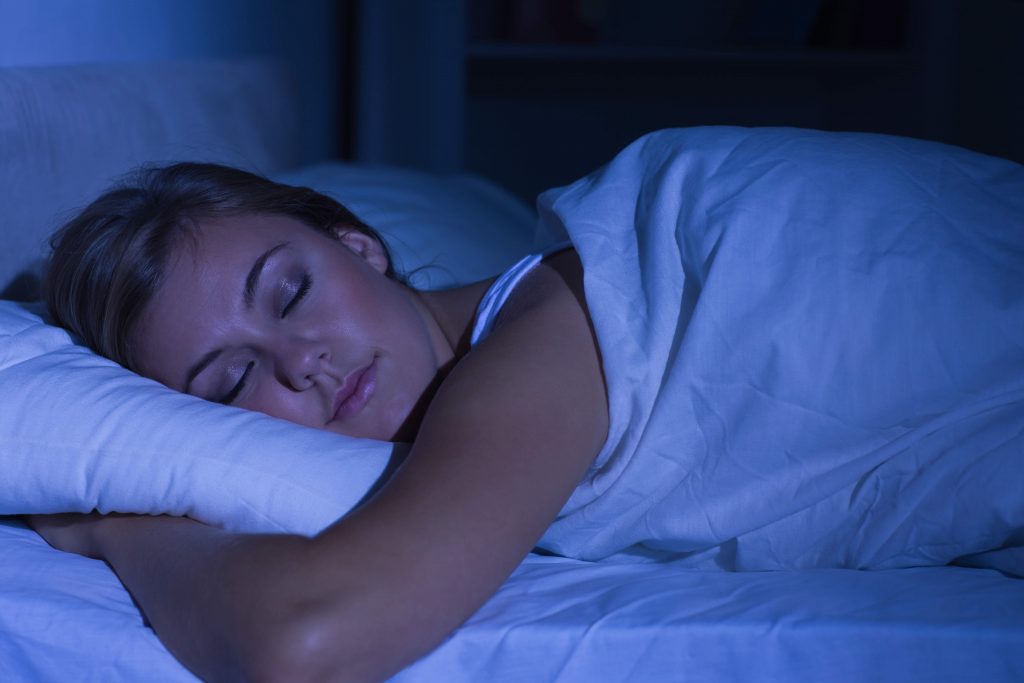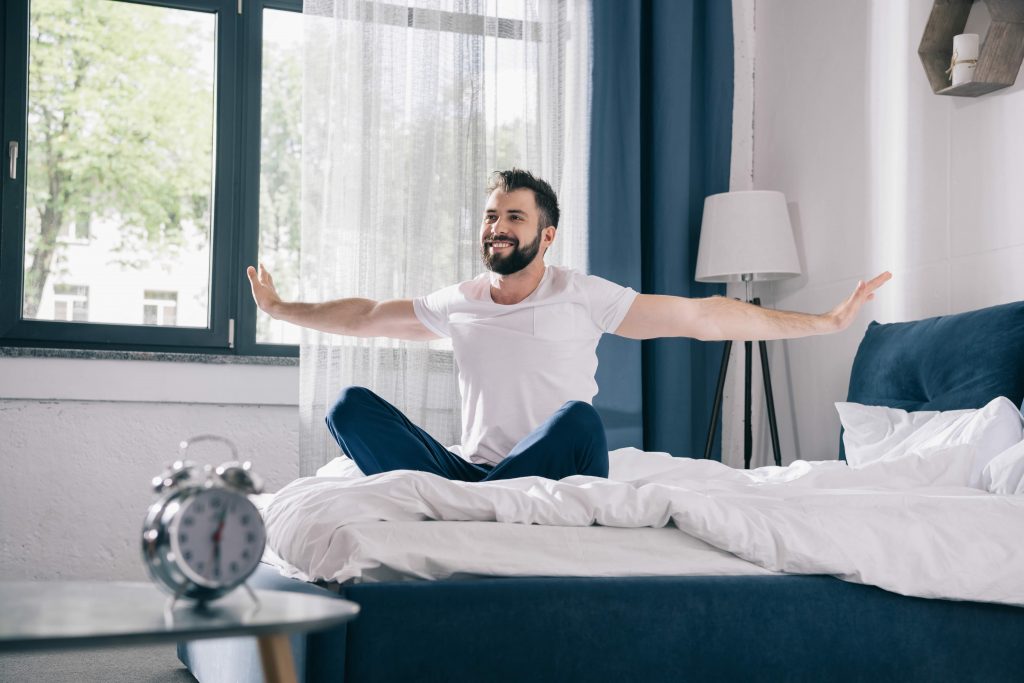

Can you think of anything worse than waking up before your alarm? You raise your head from your pillow, squint at the clock, and realize it’s too early in the morning…but also too late to go back to sleep! There’s nothing quite like that awful, anxious feeling.
Surely everyone feels this way, right? Maybe there are people who wake up early on purpose, but they’re as rare as unicorns. Or maybe not. Research suggests that waking up early can have a powerful and positive effect on your health. For self-professed “night owls,” this might sound like nonsense, but staying up late poses serious health risks. That’s just one of four reasons why you need to become a morning person.
1) Night Owls Are Less Healthy

Hey, the scientists said it, not us! According to a recent study published in the journal Chronobiology International, people who identify as “definite evening types” have a 10 percent higher risk of mortality. This doesn’t mean that staying up late will kill you, but of the nearly 500,000 adults who participated in the study, night owls suffered from more health problems than early risers. These ailments ranged across the board, from diabetes to heart disease, and included neurological disorders, psychological disorders, gastrointestinal disorders, and respiratory disorders.
“What we think might be happening is, there’s a problem for the night owl who’s trying to live in the morning lark world,” said Kristen Knutson, Associate Professor of Neurology at Northwestern’s Feinberg School of Medicine and the leading author of the study. “This mismatch between their internal clock and their external world could lead to problems for their health over the long run, especially if their schedule is irregular.”
An earlier 2014 study suggests that people who stay up late are more prone to depression. According to Knutson, being a night owl is probably a result of both genes and environment. You can’t change the genes you inherit, but modifying your evening habits can have a positive impact on your health.
“An important message here is for night owls to realize that they have these potential health problems and therefore need to be more vigilant about maintaining a healthy lifestyle,” Knutson said. “Eating right, exercising, getting enough sleep – all of these things are important, and maybe particularly so for night owls.”
2) Breakfast Is Good for You

Part of that “maintaining a healthy lifestyle” thing means treating your body right. If you sleep late and wake up late, chances are you’re out the door before you’ve had a chance to eat breakfast. You’ve heard that it’s the most important meal of the day, but do you know why?
Whether you sleep a little or a lot, you’re fasting the entire time. If you don’t feed your body nutrients when you wake up, you’ll continue to function in what is basically “starvation mode.” That means less energy, less focus. and a much bigger craving for sweets and greasy snacks. Plus, you’ll be much likelier to overeat when you do finally break your fast.
3) Routine Is Good for You

Outside the bedroom, breaking from routine and thinking outside the box is rewarded – but your body will definitely not reward you for sleeping willy nilly. Where sleep is concerned, routine is essential.
First, find out how many hours of sleep you need each night. This doesn’t mean the bare minimum of hours you need to function, but how many hours make you feel rested the next day. (Some people need a full eight, but not everyone.) Waking up early is less of a chore when you give yourself adequate time to rest.
Obviously, choosing to wake up at 5 AM no matter when you finally hit the pillow is a recipe for disaster. Sleep experts say that going to sleep earlier and waking up earlier offers a fuller, deeper sleep, because it matches the natural circadian rhythm of the Earth.
The next thing you need to do is examine your evening stimulation. Caffeine intake, exposure to bright screens, too many lights, level of exercise – all of these things factor into your sleep schedule. Closing the laptop earlier and cutting off the coffee drip can make a world of difference, even to self-professed night owls.
4) Morning People Are Happier People

Once again, this is science talking. Who doesn’t feel grumpy when dragging themselves out of bed in the morning? Well, morning people, that’s who.
According to Forbes, many successful business people are early risers. This doesn’t mean waking up one hour before your commute; this means waking up hours earlier. This quiet time is great for exercising (which also boosts mood and fitness), for meditation, and for getting a head start on the day – before the real distractions set in.
In 2008, Harvard biologist Christoph Randler found that “morning people” are more likely to anticipate problems and minimize them efficiently. They are also better at planning and making decisions. Just deciding to wake up early is a bold decision!
Sweet Dreams
A good night’s sleep is essential to healthy living. Neglect it, and you’ll gradually feel your energy drain away. Ironically, this isn’t something that can be fixed overnight. Establishing a healthy sleep routine requires diligence and commitment. It’s hard, but it’s worth it.
Regular exercise and a healthy diet can do wonders for your sleep, and it’s a self-fulfilling cycle. When you wake up early, you have more time to exercise, which in turn makes you hungrier for a real breakfast, which jumpstarts your body and makes you less inclined to eat junk.
In the long run, a healthier diet will improve your sleep.




